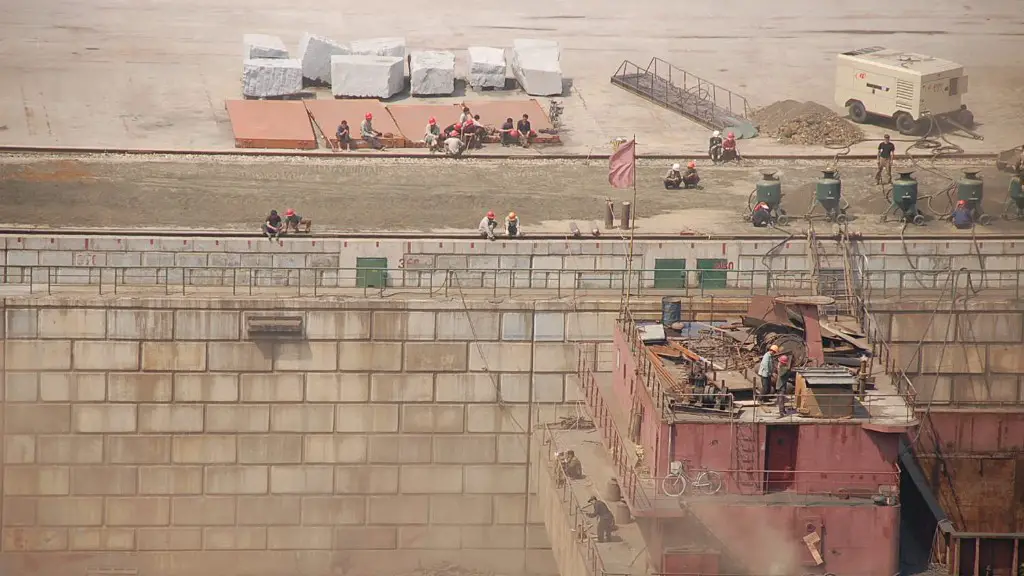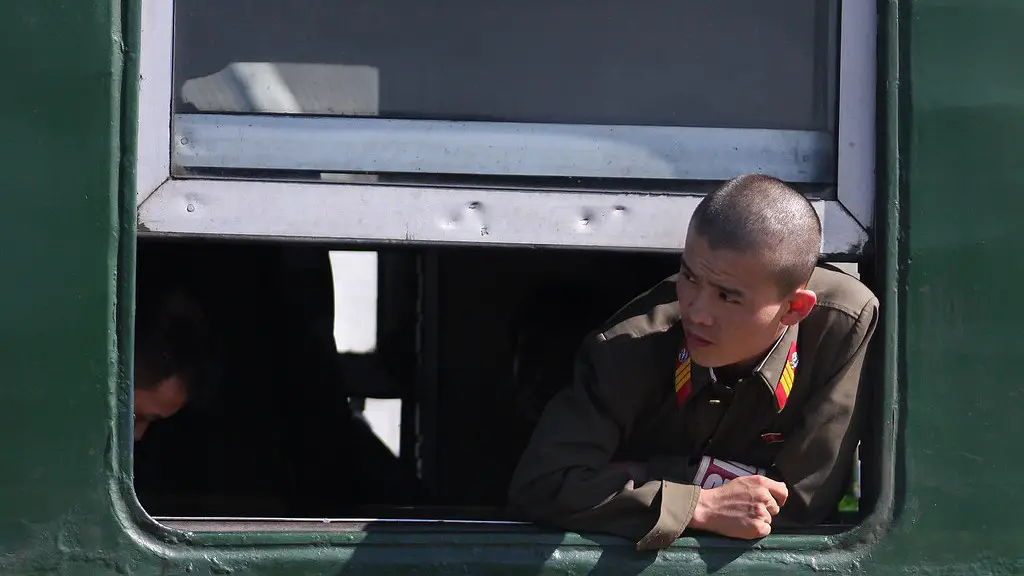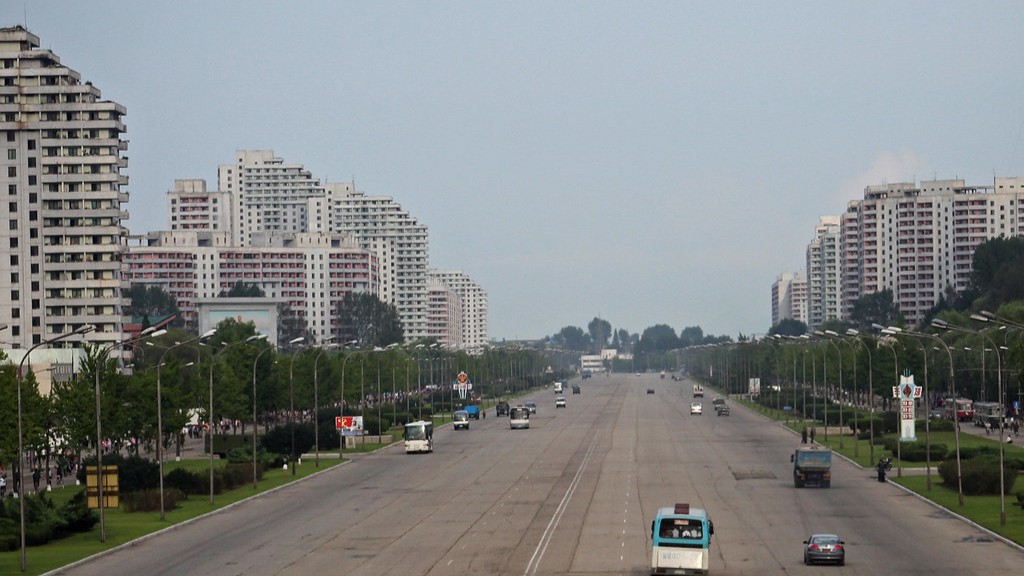In today’s world, North Korea is seen as a rogue nation. It’s a looming global security threat and often in the news for its nuclear capabilities. But, why don’t we just invade North Korea and conquer it? There are several considerations to ponder before taking such a drastic step.
The first thing to keep in mind is that North Korea has a powerful military and a population of over 25 million people, with all of them devoted to their Supreme Leader, Kim Jong Un. All the soldiers and citizens of North Korea have been taught to have extreme loyalty to Kim Jong Un, so a quick and bloodless invasion would be highly unlikely.
But, even if we were able to take control of North Korea, there’s still the issue of what to do with the country once we’ve conquered it. Do we install a new government, or try to integrate North Korea into the world economy?
An invasion would also likely be considered an act of war, bringing about strong international condemnation and sparking global tensions. It may even lead to a conflict with nations like China and Russia, both of which have close ties to North Korea.
Even if we can navigate the diplomatic obstacles, there’s still the human cost of an invasion to consider. Any war would result in tremendous loss of life and the suffering of millions of innocent people. It would take years of rebuilding and unifying the country long after the war was over.
It’s also worth considering that a military strike could have unintended consequences. We could unknowingly set off a chain of events that leads to further instability in the region. North Korea has already demonstrated its willingness to use force when it feels threatened, and this could lead to a wider conflict.
Despite all these potential drawbacks, there are also potential benefits to a military strike on North Korea. It could result in much-needed regime change, and pave the way to greater reform and development in the region. And of course, it might also put an end to the unpredictability of the current regime.
The Potential Impact of an Invasion
It’s impossible to predict the impact of an invasion on North Korea. Any invasion would result in a chaotic and unpredictable situation, with possible long-term economic, political, and social repercussions. It’s likely that the country would be destabilized and possibly split up as a result of an invasion. This could lead to increased regional tensions and unpredictable results.
For example, North Korea’s nuclear program is a potential threat to its neighbors and to the world. An invasion could disrupt the North Koreans’ ability to maintain their nuclear program. But, it may also lead to a dangerous escalation of tensions in the region, with the risk of a nuclear exchange.
In addition, an invasion would likely lead to a massive refugee crisis. Tens of millions of people would look for refuge outside of North Korea in the wake of an invasion. The countries neighboring North Korea would feel most of the burden and would struggle to provide for the refugees. This could have far-reaching economic and social impacts.
The economic costs of an invasion, too, are difficult to assess. It’s certain, however, that they would be immense. Any war would require huge investments of resources, not just in terms of money, but in terms of human lives as well.
UN Resolution and International Opinion
The United Nations resolution on North Korea has made it clear that military action should be a last resort. This resolution was backed unanimously by all 15 members of the UN Security Council, including North Korea’s main defender, China. This strongly suggests that an invasion is not favored by the international community.
Furthermore, most countries in the region, including South Korea, are opposed to a military confrontation with North Korea. The South Korean government is focused on finding a peaceful, negotiated solution to the North Korean problem. An invasion by any foreign power would be seen as a hostile act and risks a dangerous escalation in the region.
For these reasons, most experts agree that a military strike on North Korea should be avoided. Any war brought about by an invasion would be a humanitarian disaster and have unpredictable consequences. There are other, more effective solutions that the international community should pursue instead.
Sanctions, Negotiations and Diplomatic Incentives
The international community should focus its efforts on using sanctions, negotiations, and diplomatic incentives to bring an end to the recent crisis. Sanctions have proven to be effective in the past, and diplomatic incentives like trade and investment could be used to encourage North Korea to make concessions.
The parties involved will also have to explore the possibility of negotiating a peaceful end to the conflict. The North Korean government is unlikely to be willing to give up its nuclear ambitions, but there may be room for compromise. Negotiations could bring about a resolution through diplomatic channels, rather than through violence.
The United States and its allies should also double down on intelligence gathering operations. A better understanding of North Korea’s activities would give the international community a stronger hand in negotiations. It would enable the US and its allies to better assess the potential outcomes of any military action.
Finally, the US and its allies should continue to apply diplomatic pressure on North Korea. The international community should make it clear that any military action would have serious consequences, and that a peaceful solution is the only viable way forward.
The Cost of War
As the situation in North Korea continues to evolve, it’s important to remember the cost of war. Any military action would have far-reaching impacts on the region and beyond, and should be avoided if at all possible. It’s up to the international community to resolve this crisis peacefully, by using a combination of sanctions, negotiations, and diplomatic incentives.
A military strike on North Korea would be a massive undertaking and is not the ideal solution. It could result in massive loss of life and an unpredictable outcome. It’s important for the United States and its allies to exhaust all peaceful options before contemplating the use of force.
Military Strategy and the Role of China
In the event of a military strike, the US and its allies would have to develop a clever strategy to maximize the chance of success. For example, China could be enlisted to help put pressure on North Korea, either through economic sanctions or through military action.
Alternatively, the US and its allies could look for ways to disrupt North Korea’s nuclear program through cyber warfare. This would involve hacking into North Korean networks, sabotaging their nuclear facilities, and otherwise cutting off North Korea’s access to its nuclear weapons.
Finally, the US and its allies could work together to deploy a comprehensive strategy of deterrence. They could deploy missile defense systems in the region, deploy more troops in the region, and take other steps to make it clear to North Korea that any military action will not be tolerated.
The Need for Prudence
Ultimately, any military action should only be a last resort. An invasion by any foreign power is likely to have unpredictable and disastrous consequences. There are other ways to resolve the North Korea crisis and the international community should take full advantage of those options.
We must also remember that war is unpredictable and uncontrollable. We have no guarantee that an invasion would be successful, or that it would lead to the desired outcome. The human costs of an invasion would also be immense and could have devastating long-term impacts.
Therefore, prudence is the key to avoiding war and resolving the North Korean crisis. The US and its allies should focus their efforts on finding a peaceful, negotiated solution to the situation. Any military option should be considered only as a last resort.
The Need for Unity
In today’s world, it’s more important than ever for the international community to stand together in the face of crisis. A military strike on North Korea is likely to have serious and far-reaching ramifications. It’s therefore essential that all countries work together to de-escalate the situation, and to find peaceful, diplomatic solutions.
The US and its allies should look for ways to engage North Korea in meaningful dialogue. They should also use diplomatic, economic, and other incentives to encourage North Korea to make concessions. In the meantime, the US and its allies should continue to apply pressure on North Korea, in the hopes that it will yield to international pressure.
The international community should also look for ways to build on international cooperation. The UN and its Security Council must continue to work together in order to find the best solutions to the North Korean problem. Countries should also explore the possibility of regional cooperation, as this could increase the chances of finding a peaceful solution to the crisis.





